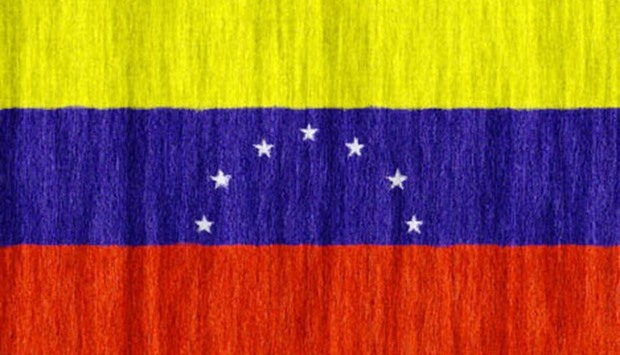President
Nicolas Maduro’s cash-strapped socialist government invited Venezuelan
bondholders to a November 13 meeting in Caracas as a shock decision to
restructure the Opec nation’s foreign debt sent prices plunging
yesterday.
Vice President Tareck El Aissami, who is on a US blacklist
for alleged drug trafficking, said the country remained committed to
paying all its debt, but wanted to reformulate terms with creditors.
“A
sovereign process of debt renegotiation is beginning,” said El Aissami,
who is heading Venezuela’s debt committee despite having no known prior
experience on the matter.
El Aissami gave an e-mail address for
bondholders to write to and added that Economy Minister Simon Zerpa —
also under US sanctions on graft charges — would be on his committee
too.
Venezuelan bond prices took a beating in trading yesterday after Maduro’s surprise announcements on Thursday evening.
The
$753mn 2018 bond plunged 31 points, while the $3bn 2026 bond and $4.2bn
2031 papers both slumped about 10 points, with yields surging to record
levels.
State oil company PDVSA’s 2021 bond was down 20 points while the 2022 paper dropped nearly 18 points, Reuters data showed.
Maduro,
the 54-year-old successor to Hugo Chavez, said late on Thursday that
PDVSA would make this week’s $1.1bn payment on a maturing bond which had
been the immediate point of anxiety for investors.
But he then
announced a new commission to study the refinancing and restructuring of
all future payments on foreign debt, which include about $50bn in
bonds.
Refinancing usually involves a voluntary operation in which
investors agree to exchange one set of securities for another, whereas a
restructuring implies a forced negotiation.
Venezuela has few
avenues to take either because of President Donald Trump’s sanctions and
scepticism that Maduro is serious about overhauling a moribund economy.
Aimed
at squeezing the ruling Socialist Party whom Washington accuses of
installing a dictatorship, Trump’s measures bar US banks from
participating in or even negotiating new debt deals.
Venezuela’s move
could create a sovereign debt crisis of a scale not seen in Latin
America since the massive 2001 default in Argentina that shut it out of
markets for years.
Maduro said a US-led global “persecution” of his government was to blame for Venezuela’s debt predicament.
But
opposition leaders, who have long blamed Maduro and his predecessor
Chavez for destroying the economy, was scathing about his plans, saying
the government had no credibility.
“Maduro won’t be able to
restructure the debt because nobody in the world trusts his government,”
said Julio Borges, head of the opposition-led congress, who has been
campaigning hard to increase global pressure on Maduro.
The president said Borges should be tried for treason.
The
government and PDVSA owe some $1.6bn in debt service and delayed
interest payments by the end of the year, plus another $9bn in bond
servicing throughout 2018.
The next hard payment deadline for PDVSA
is an $81mn bond payment that was due on October 12 but on which the
company delayed payment under a 30-day grace period.
Failing to pay that on time would trigger a default, investors say.
That would expose Venezuela and PDVSA to lawsuits by creditors seeking to seize assets such as refineries in the US.
Default
would also likely make companies less willing to do business with
Venezuela, potentially aggravating shortages of food and medicine and
creating further problems for its vital oil industry already hobbled by
under-investment.
There was no immediate impact, however, on oil exports and production from Maduro’s announcement.
The
president surprised many by maintaining debt service after the 2014
crash in oil prices, diverting hard currency away from imports of food
and medicine toward Wall Street investors.
That has added to a
crushing four-year recession, with millions skipping meals, and basics
from milk to car parts scarce or impossible to buy due to soaring
prices.
Traders were left scratching their heads over Maduro’s
statements, which neither clearly declared default nor laid out a path
to easing payment burden.

